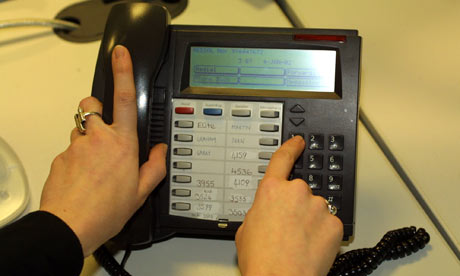
Diversified portfolio
Many investors have heard of the term “diversified portfolio”.
It means to have a collection of investments in different items and different sectors.
It is a generally accepted principle that a diversified portfolio carries lower risk than one that is entirely focused in a single asset class.
Here is a simple example of diversification in practice.
If you invested £100,000 in a property, and over the course of the next 5 years, that property had fallen in value to £95,000, the investor would have a net loss of £5,000.
Property Purchase Price : £100,000
Sale Price : £ 95,000
Loss : £ (5,000)
However, had he invested half in a property with the same decline in prices, and the other half in gold which rose 20% in 5 years, he would have a net gain of £7,500.
Property Purchase Price : £ 50,000
Property Sales Price : £ 47,500
Loss : £ (2,500)
Gold Purchase Price : £ 50,000
Gold Sales Price : £ 60,000
Profit : £ 10,000
Overall Profit : £ 7,500
In this example, diversification worked well – this is where the term “not putting all your eggs in one basket” applies.
Of course, if he had invested all of his £100,000 in gold, then he would have made a gain of £20,000, but at greater risk.
So, what can you put into an investment portfolio to give greater diversity?
Cash – The safest asset class of all. Investments in banks and building societies will generate low, but very safe returns. In the UK, Premium Bonds and National Savings would fall under this heading.
Government Bonds – Usually considered one of the safest asset classes, government bonds are issued by most countries as a way of raising financing. These are also referred to as “Gilts” in the United Kingdom. Typically government bonds pay a low rate of interest.
Corporate Bonds – Bonds issued by companies which typically pay varying rates of interest depending on the considered level of risk of the company who issued the bonds.
EG – Microsoft bonds would be considered very low risk, and pay a low level of interest, a medium sized IT company would be considered high risk and would pay a higher level of interest.
Both government and Corporate bonds, should be viewed as a type of loan where you are the lender and the issuer is the borrower. These loans would be over a fixed period of time, and the amount of interest would be fixed. At the end of the loan period, the issuer will repay the face value of the bond.
There are two risks associated with owning a bond – the first is the issuer going bust and being unable to repay the bond, and the second is an increase in inflation resulting in a decline in value of the fixed interest rate coupons (or payments).
Growth Stocks –Growth Stocks are considered higher risk than bonds, but are often considered to generate a higher return in the long run. There have always been time periods (such as 2008) when stock markets suffer from very sudden declines in value. A growth stock is considered to be from a company which does not pay dividends and where the investor hopes to increase his asset value through an increase in share price over time.
Dividend Paying stocks – Generally, dividend paying stocks are considered lower risk than growth stocks (but there are always exceptions such as Lloyds bank since 2008). Paying Dividends are the company’s mechanism for sharing the profits of the company with its owners (its shareholders). In the UK, the largest dividend paying companies are Vodafone and BP.
Mutual Funds – Because picking stocks and building your own portfolio can be difficult, a lot of investors trust fund managers to invest money on their behalf in mutual funds.
Examples of mutual fund managers would include Fidelity and Aberdeen asset management.
These companies operate a number of funds, often focusing on different geographical locations or market segments and attempt to pick shares which will outperform the market.
Fund managers will usually charge a fee of approx. 2% per year as a management fee in return for looking after your investment. This fee is charged every year even if the fund manager loses money on your investment. Mutual fund units can usually only be bought or sold at one point during a day, and it is common to have to give notice of several days to make a sale or purchase.
Exchange Traded Funds – also known as ETF’s, are bought and sold like a share (through a stockbroker). An ETF is a fund that is made up of a number of investments – eg – the ETF called “SPY” is made up of the whole Standard and Poors 500 index. This is a cheap way of effectively buying a portion of the whole index.
ETF’s are becoming more popular as investors are realising that they do not attract the large management fees of a mutual fund. In addition, ETF’s can be bought or sold at any point during the trading day. There are now several hundred ETF’s available and this ranges from stock indices, through to gold (GLD) and even one for agriculture which goes by the code of MOO!
Leveraged and Short ETF’s – Leveraged ETF’s allow you to purchase for example an S&P500 index which is leveraged to give you twice or three times the movement on the index. This is referred to as 2 or 3 times or 2x or 3x.
So, if the market index increases by 3%, the 2x leveraged ETF increases by 6%, whilst the 3x leveraged ETF increases by 9%.
Also, negative or “short” ETF’s now allow you to bet that a market index will decline. If the market declines, then your investment increases in value.
These ETF’s carry far greater risk and are more volatile.
Property – During the property bubbles of the 1990’s and early 2000’s, buy to let investments fueled by easy and cheap credit became very popular and during this period, those most leveraged with borrowings experienced excellent returns. As many property markets have either declined or stabilised and credit has dried up, investments in property have largely returned to professional landlords. As a long term investment, directly owning property plays an excellent role in providing portfolio diversification.
Gold and Silver – Precious metals can be a good “investment” as stores of value during periods of high inflation. The downside is that precious metals are unproductive assets that generate no interest or dividend payments. Investments can be either in physical gold such as krugerrands, Maple Leafs or Sovereigns or through ETF’s (Exchange Traded Funds).
Alternative Investments – This sector can include assets such as classic cars, antiques, fine wines, stamps, coins, vintage share certificates and even vintage musical instruments.
All of these assets experience ups and downs in value and can be considered high risk, however it is worth bearing in mind that these assets can often be quite illiquid (difficult to return to cash).
Also, many of these asset classes rise during good economic times, and decline in value during a recession. These can be considered better investments if some pleasure is gained by the owner whilst in their possession.
So, a wide variety of investments are available to investors today. In order to reduce risk in your portfolio, diversification is key.
However, diversification just for diversifications sake is not recommended.
Ie – If an asset class is clearly in a downtrend, purchasing that asset class just to gain diversification is not to be recommended. Choose carefully.
Accountant Romford – Transform Accounting – The Essex Accountants
Disclaimer – The information presented in this article is intended for education purposes and is not intended to be used as the sole basis for any investment decision nor should it be construed as advice intended to meet the investment needs of any investor. The author may hold positions referred to in this article. Please perform your own research or contact a qualified financial adviser prior to making any investment decisions.
Read Full Post »









